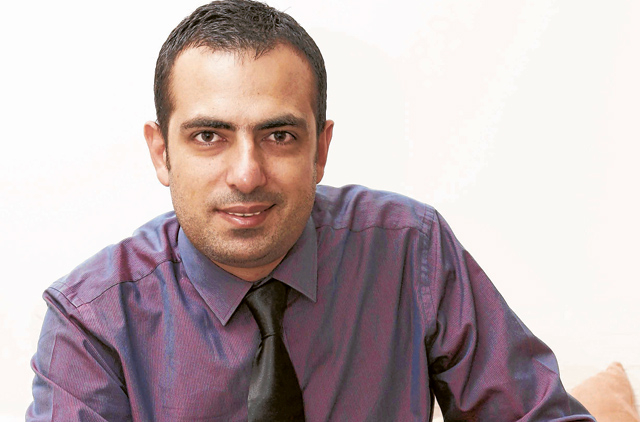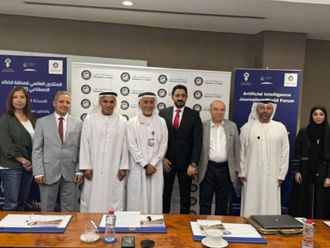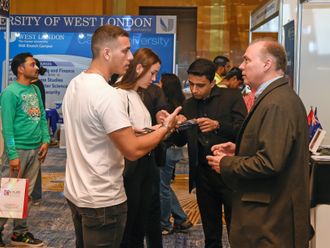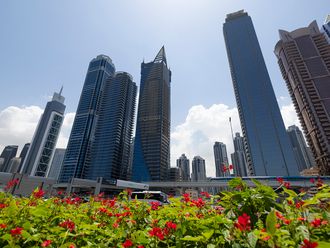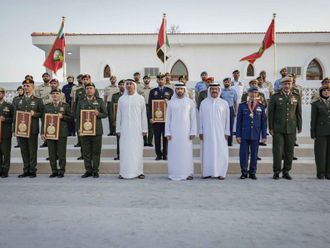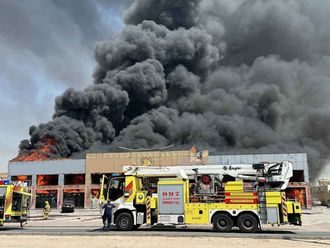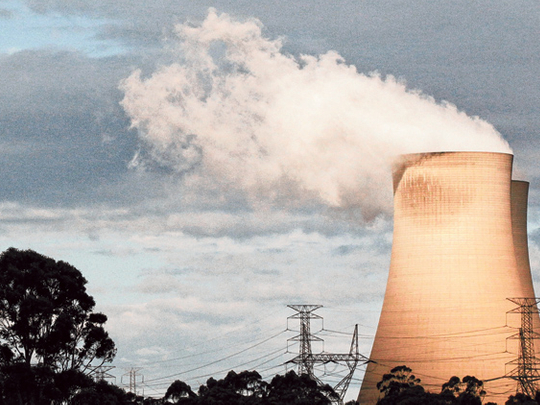
Dubai: The UAE's CO2 emissions caused by electricity production, could be eliminated by 2050 if the Emirates Nuclear Energy Corporation (Enec) introduced eight nuclear power plants with four reactors each.
This hypothesis was put forth in a dissertation study by Hassan Al Farra, a recent Master's of Science (MSc) graduate from the British University in Dubai (BUiD). He does believe, however, a deadline beyond 2050 to actually be more realistic.
"I think eight power plants by 2050 are a bit much and in reality four power plants with four reactors would be more suitable," said Al Farra. "We've put forward the dissertation to Enec with some recommendations and received good feedback."
The United Nations Environmental Programme revealed the GCC countries emit nearly 50 per cent of the Arab region's CO2 emissions. However, the population of the entire GCC is less than 20 per cent of the total population of the Middle East.
Nuclear energy
In his 200-page study called: The potential role of nuclear energy in mitigating CO2 emissions in the UAE, Al Farra states the electricity demands in the GCC have tripled the universal average in recent years due to the region's mega construction and infrastructure projects. He added air-cooling requirements and government subsidies of citizen bills has also encouraged vast amounts of electricity consumption.
However, the GCC's electricity demands are anticipated to experience an 80 per cent rise by 2015.
It is for this reason Enec is currently developing the UAE's first nuclear power plant with four nuclear reactors, the first of which is expected to go online by 2017. The proposed site for the plant is in Braka in Abu Dhabi's Western Region.
Enec's aim is to produce nearly 25 per cent of the UAE's electricity through nuclear energy by 2020.
Al Farra, who is Palestinian, is a sustainability architectural engineer and recently graduated from BUiD with an MSc in Sustainable Design of the Built Environment.
He has however, already enrolled himself at Cardiff University for a PhD. His doctoral research is concentrated on the construction of entire buildings from photovoltaic materials such as solar panels to generate green and sustainable energy.
The father of two is determined to focus his career on developing alternative sources of energy in pursuit of becoming a leading expert in the Middle East.
"I want to specialise in the field of renewable energy because it's new across the world," he said. "My goal is to make discoveries in relation to renewable energy, which will hopefully one day, win me a Nobel Prize."
Renewable sources
The focus of his master's dissertation was on nuclear energy because he believes it to be a good transitional form of energy until science perfects renewable sources of energy.
"We need a type of alternative energy to contribute to the sustainability of our environment and things like solar and wind energy are still under development," he said.
"Nuclear energy is good for this transitional period because it has environmental benefits and serves to close as a clean energy source until renewable energy sources are fully developed."


